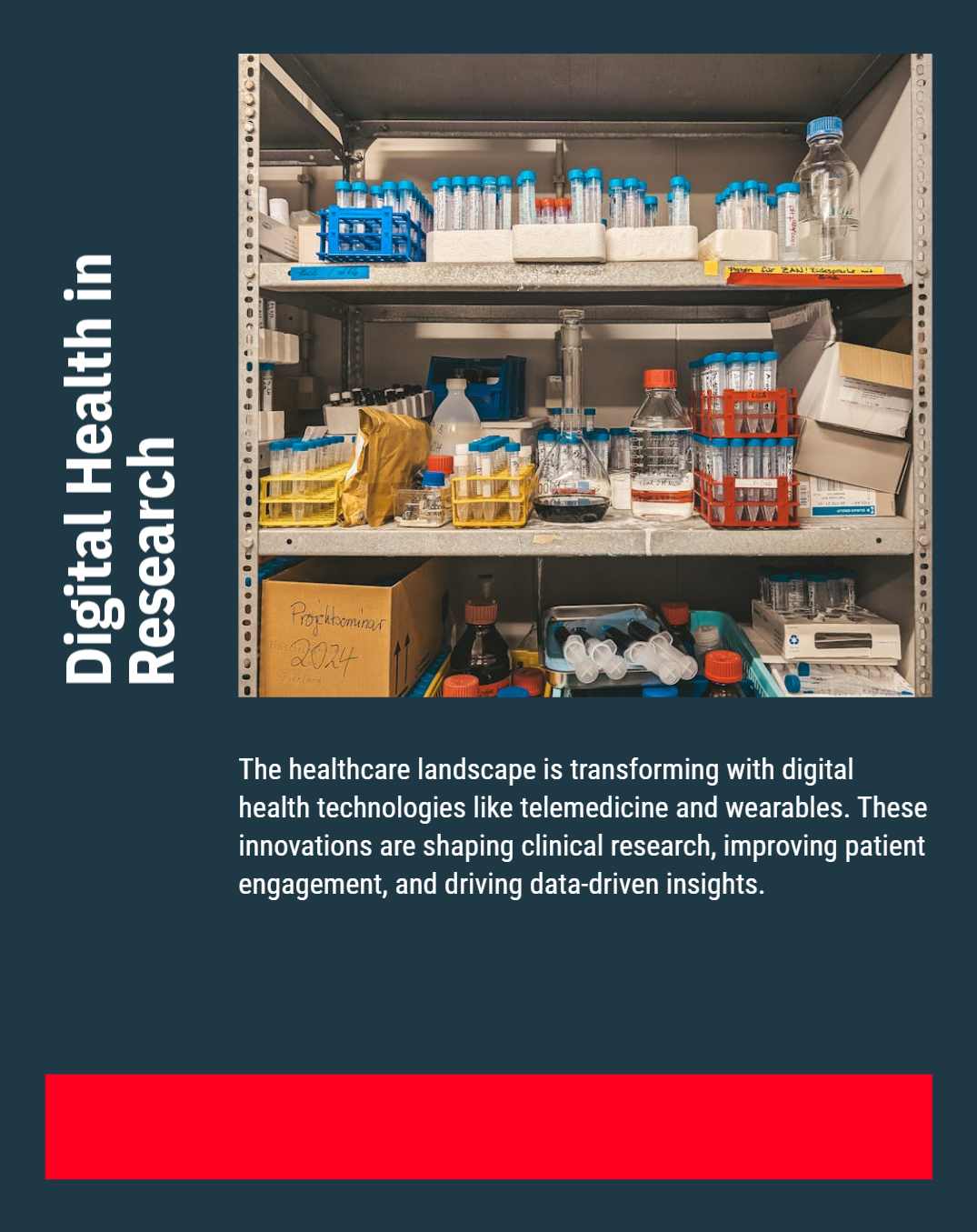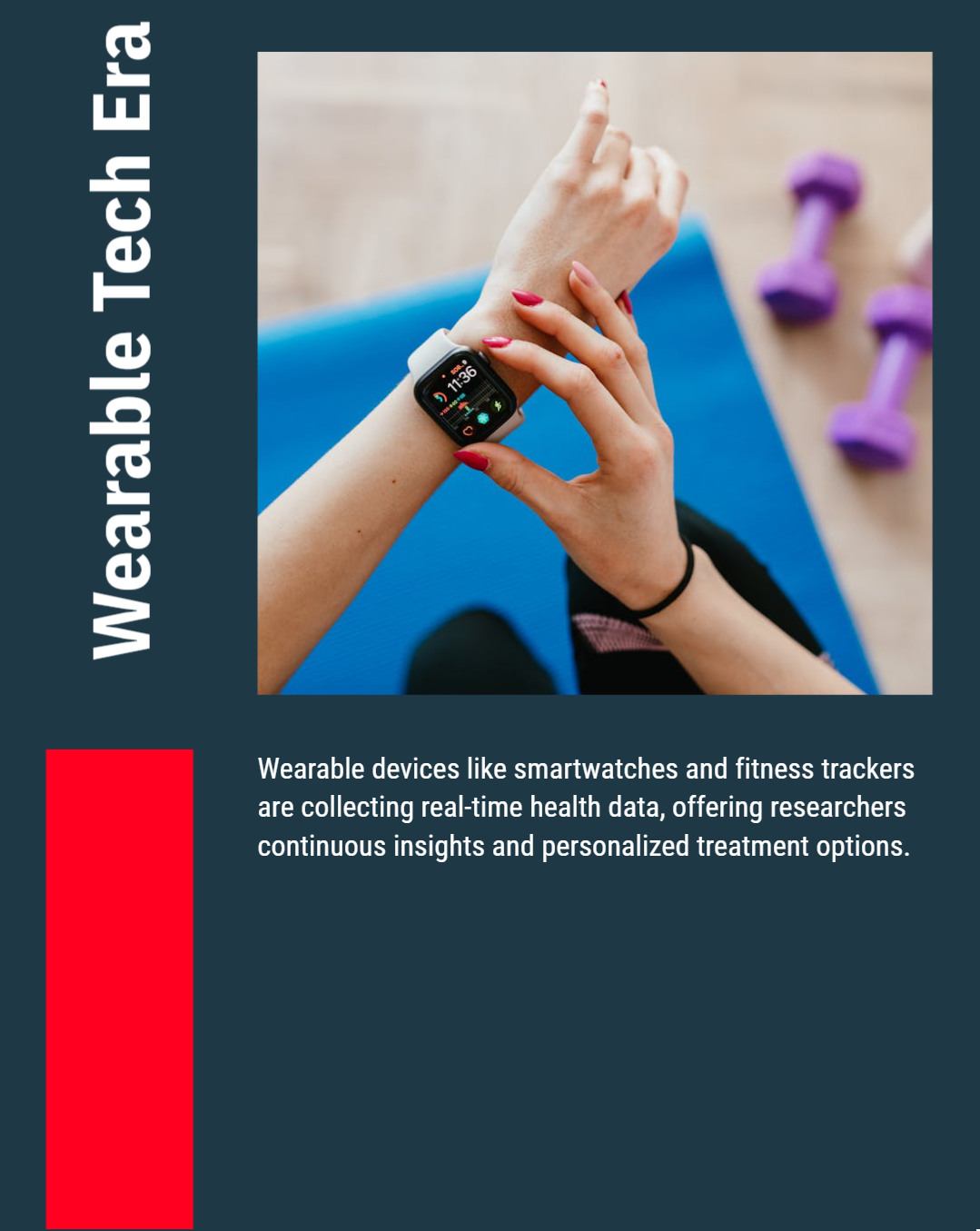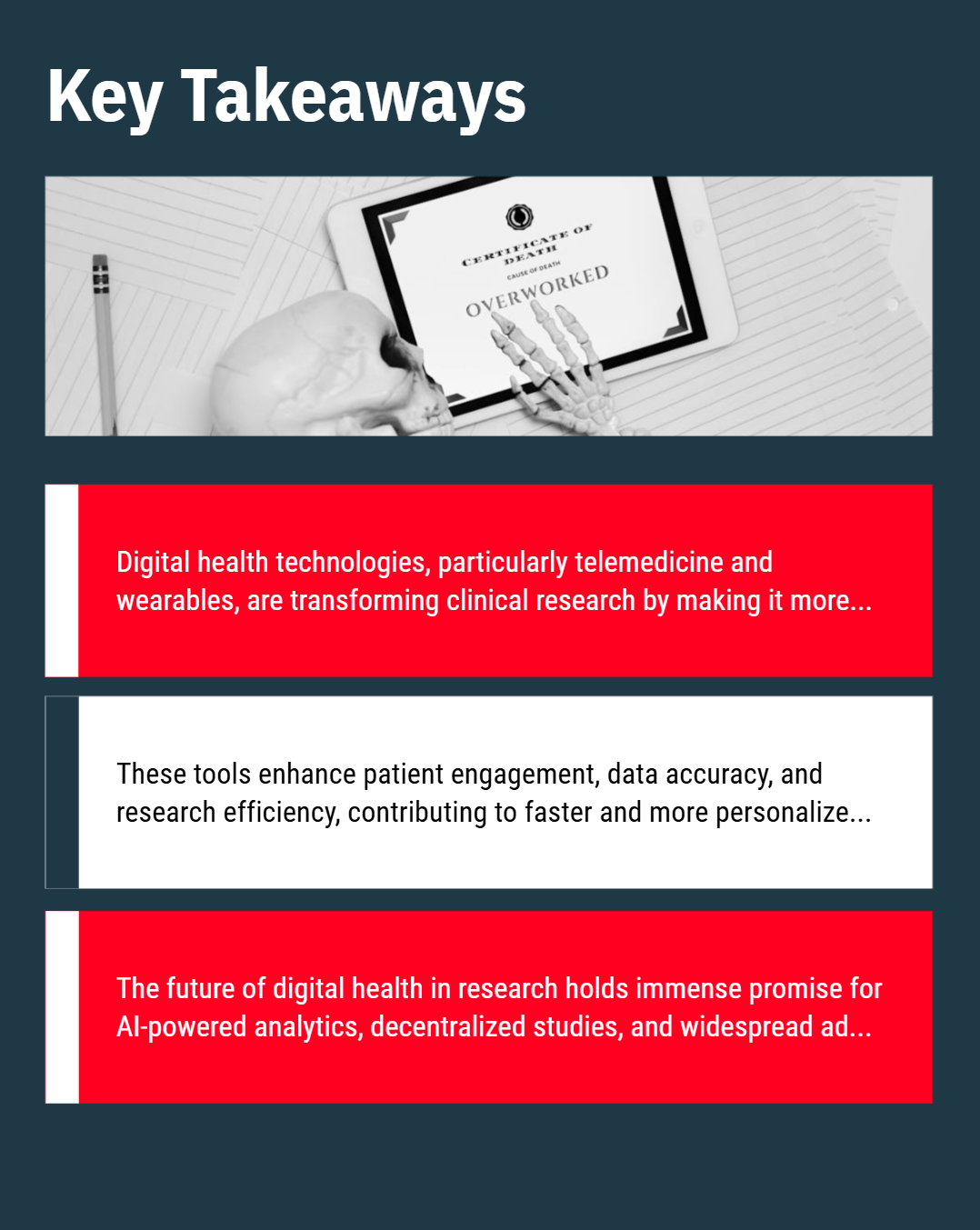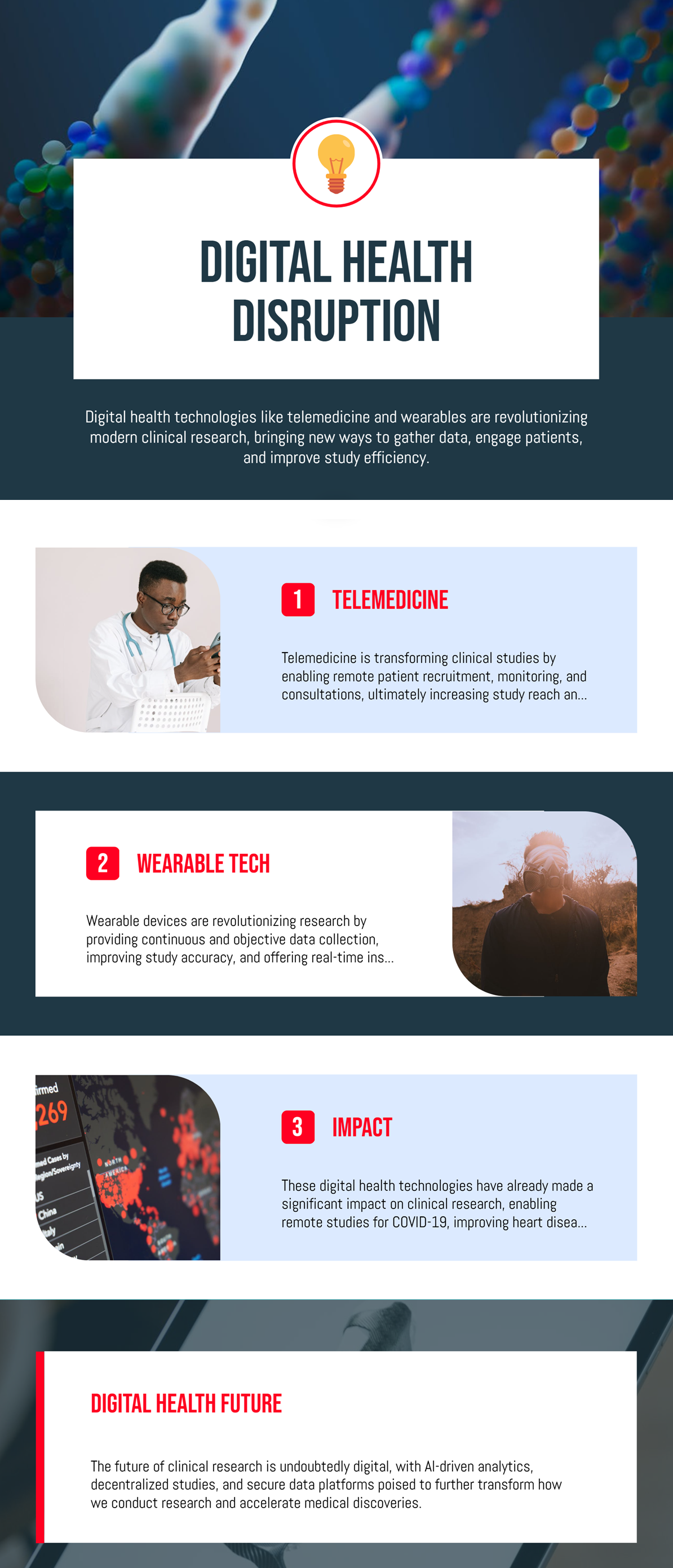The landscape of healthcare is undergoing a massive transformation, thanks to rapid advancements in digital health technologies. Among these, telemedicine and wearable technologies have emerged as powerful tools in modern clinical research. These innovations are improving patient engagement, enhancing data collection, and reshaping how medical studies are conducted.

What is Digital Health?
Digital health refers to the use of technology, software, and digital platforms to improve healthcare delivery and medical research. This includes:
Digital health solutions are revolutionizing clinical research by offering real-time data collection, remote monitoring, and improved patient compliance.
Why is Digital Health Transforming Clinical Research?
Traditional clinical studies face significant challenges, such as:
Digital health solutions reduce these barriers by enabling remote participation, improving data accuracy, and enhancing study efficiency.
What is Telemedicine?
Telemedicine allows healthcare professionals to provide medical services through video calls, messaging platforms, and digital health records. In clinical research, telemedicine is used to remotely recruit, monitor, and consult patients participating in studies.
How Telemedicine is Revolutionizing Clinical Research
Remote Recruitment & Screening
Improved Patient Monitoring
Real-Time Data Collection & Reporting
Enhanced Diversity & Inclusion
Challenges of Telemedicine in Clinical Research
Despite its benefits, telemedicine faces some challenges:
However, ongoing innovations in telehealth infrastructure and cybersecurity are addressing these issues.

What are Wearable Health Devices?
Wearables are smart devices worn on the body to track health metrics in real time. Common examples include:
These devices collect continuous, objective data, improving the accuracy of clinical studies.
Benefits of Wearables in Clinical Research
Continuous, Real-Time Data Collection
Enhanced Patient Adherence
Remote Monitoring & Reduced Costs
Early Detection of Health Issues
Personalized Treatment Insights
Challenges of Wearable Tech in Clinical Research
Despite these challenges, wearables are becoming an indispensable tool in modern research.

1. Remote Clinical Studies for COVID-19
During the COVID-19 pandemic, many clinical studies shifted to virtual formats. Telemedicine and wearables played a crucial role in:
2. Wearables in Heart Disease Research
A study using smartwatches and ECG patches found that AI-driven heart rate monitoring helped predict atrial fibrillation early, improving patient outcomes.
3. Diabetes Management with Continuous Glucose Monitors
CGMs like the Dexcom G6 have transformed diabetes research, allowing researchers to collect continuous blood glucose data without the need for multiple finger pricks.
The future of telemedicine and wearable technologies in clinical research is promising. Key trends include:
AI-Powered Predictive Analytics
Decentralized Clinical Studies (DCTs)
Blockchain for Data Security
5G & Enhanced Connectivity
More FDA & EMA Approvals

The digital health revolution is reshaping clinical research, making studies more accessible, cost-effective, and data-driven. Telemedicine and wearable devices have already demonstrated their value in improving patient engagement, data accuracy, and research efficiency.
As technology advances, these innovations will continue to bridge gaps in healthcare, enhance study diversity, and accelerate medical discoveries. For researchers, embracing digital health solutions is no longer optional—it’s the future of clinical research.
Telemedicine improves studies by enabling remote patient monitoring, virtual consultations, and real-time data collection, reducing the need for physical visits.
Many FDA-approved wearables provide medical-grade accuracy, but researchers must verify device reliability before use.
Challenges include data security concerns, regulatory compliance, and device accuracy issues.
Yes! Telemedicine and wearables allow remote participation, making studies more inclusive for diverse populations.
The future includes AI-driven analytics, decentralized studies, blockchain security, and wider regulatory acceptance of digital tools.
 03.02.2025
03.02.2025